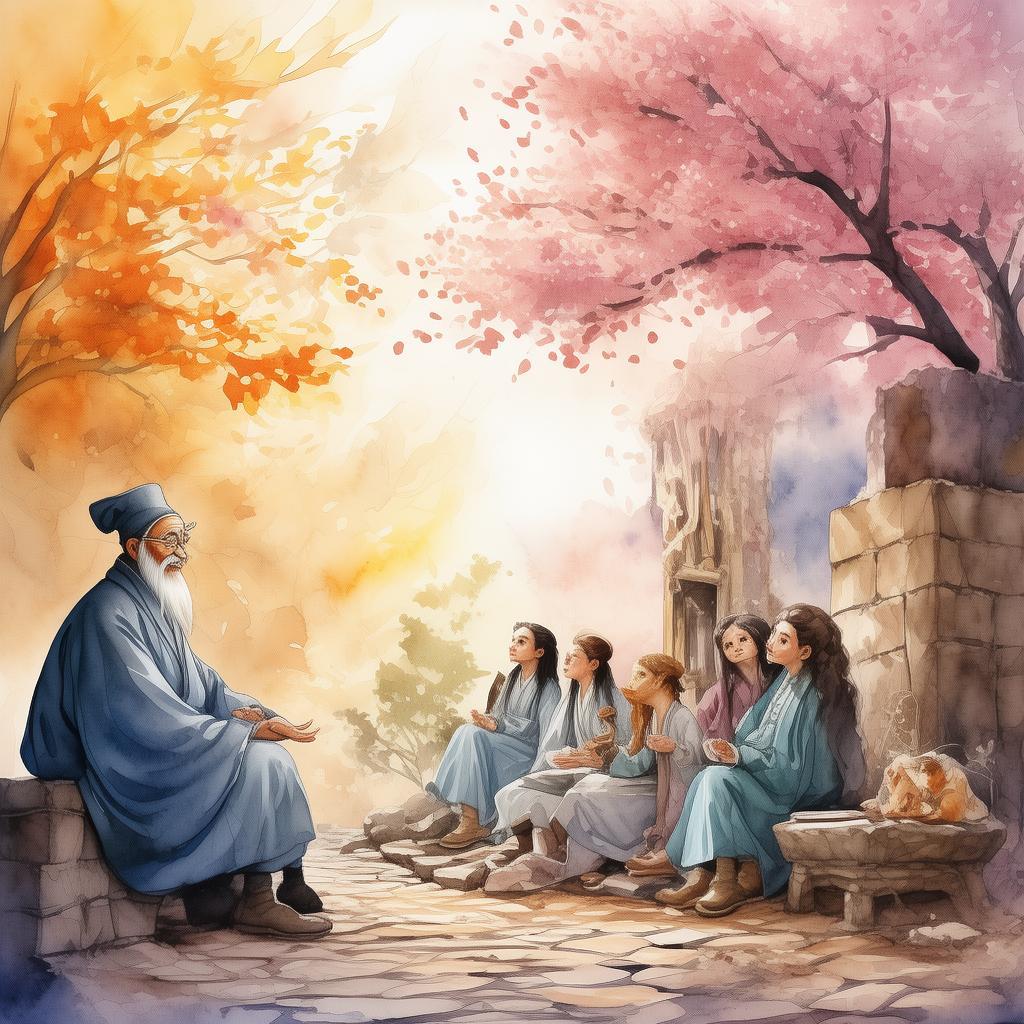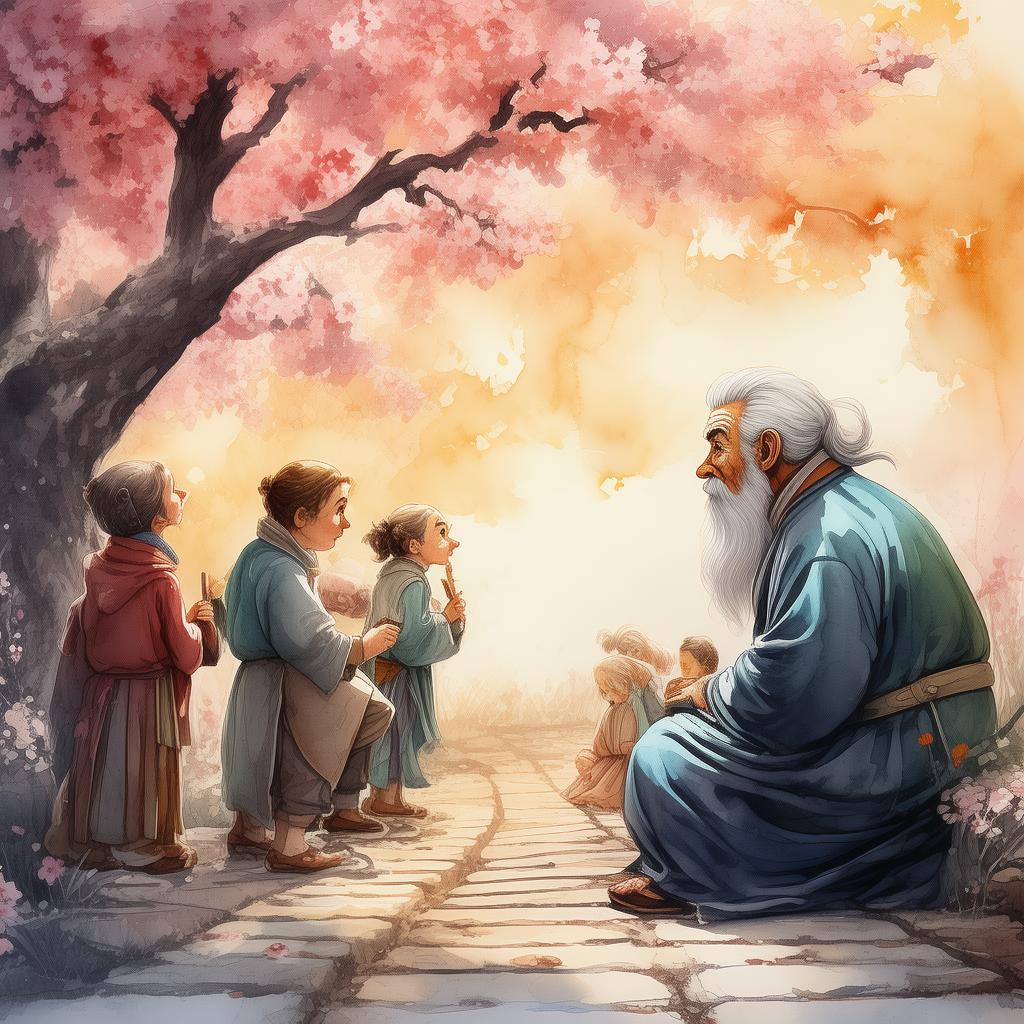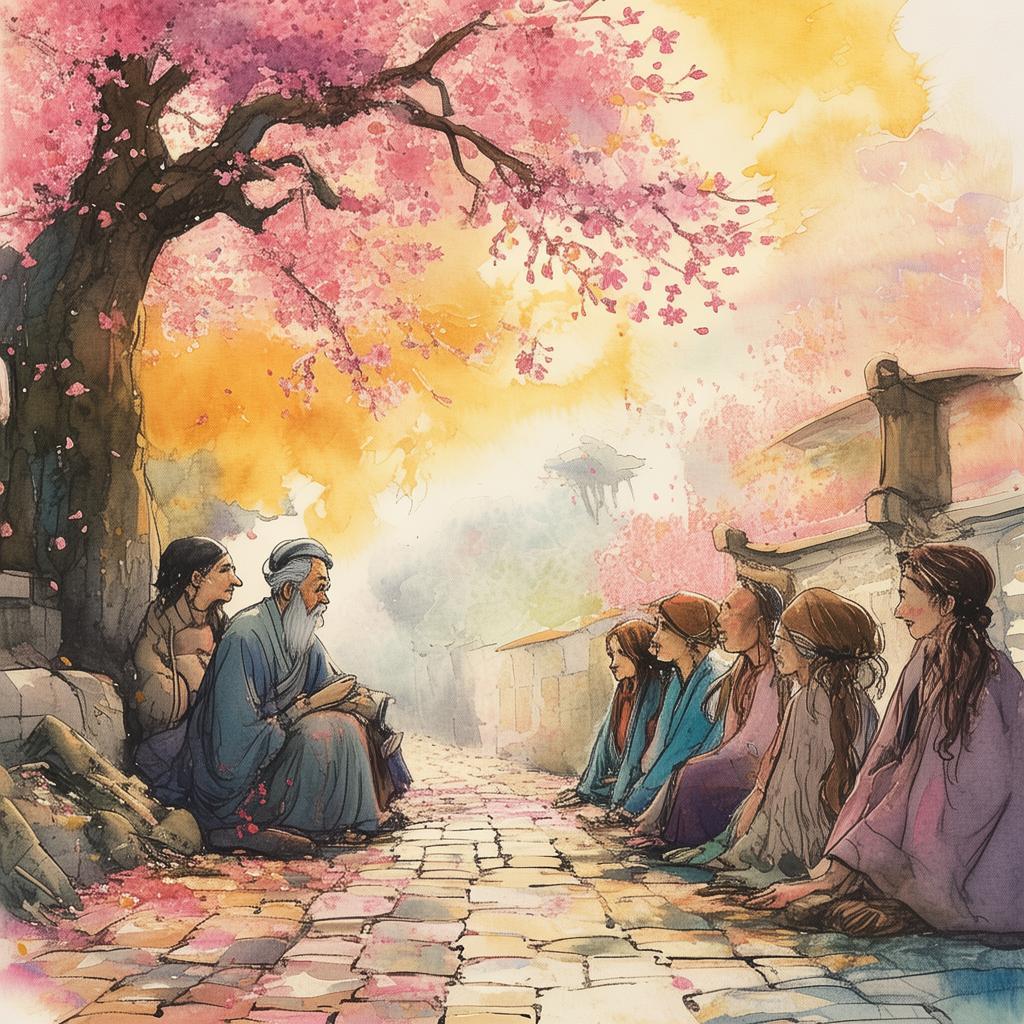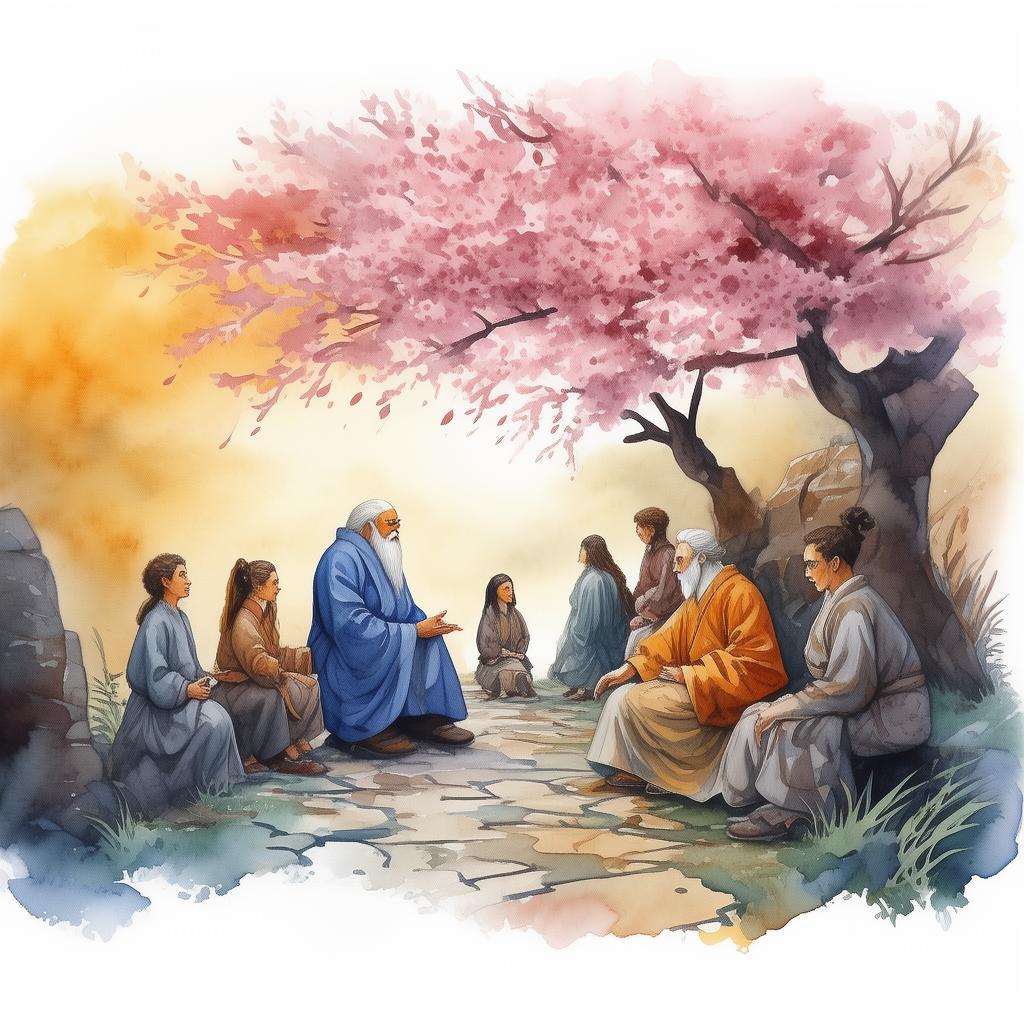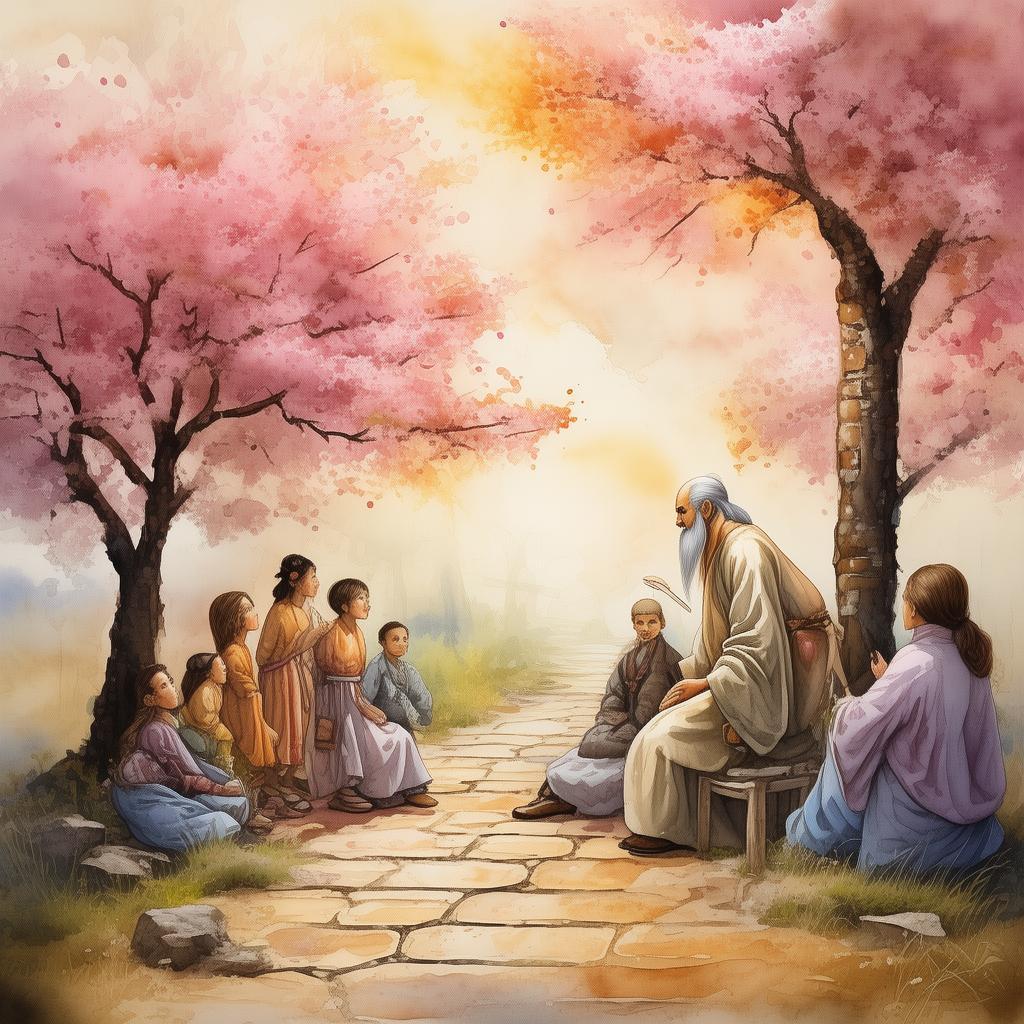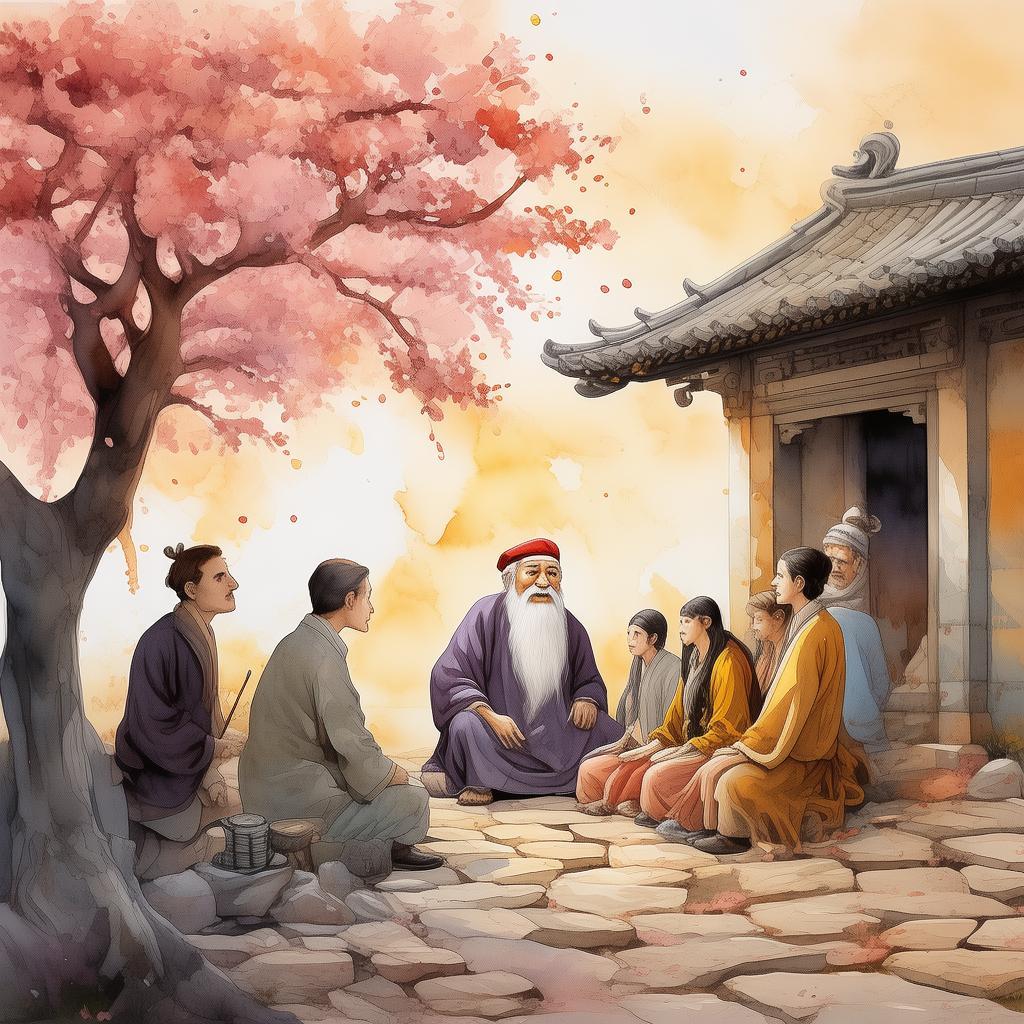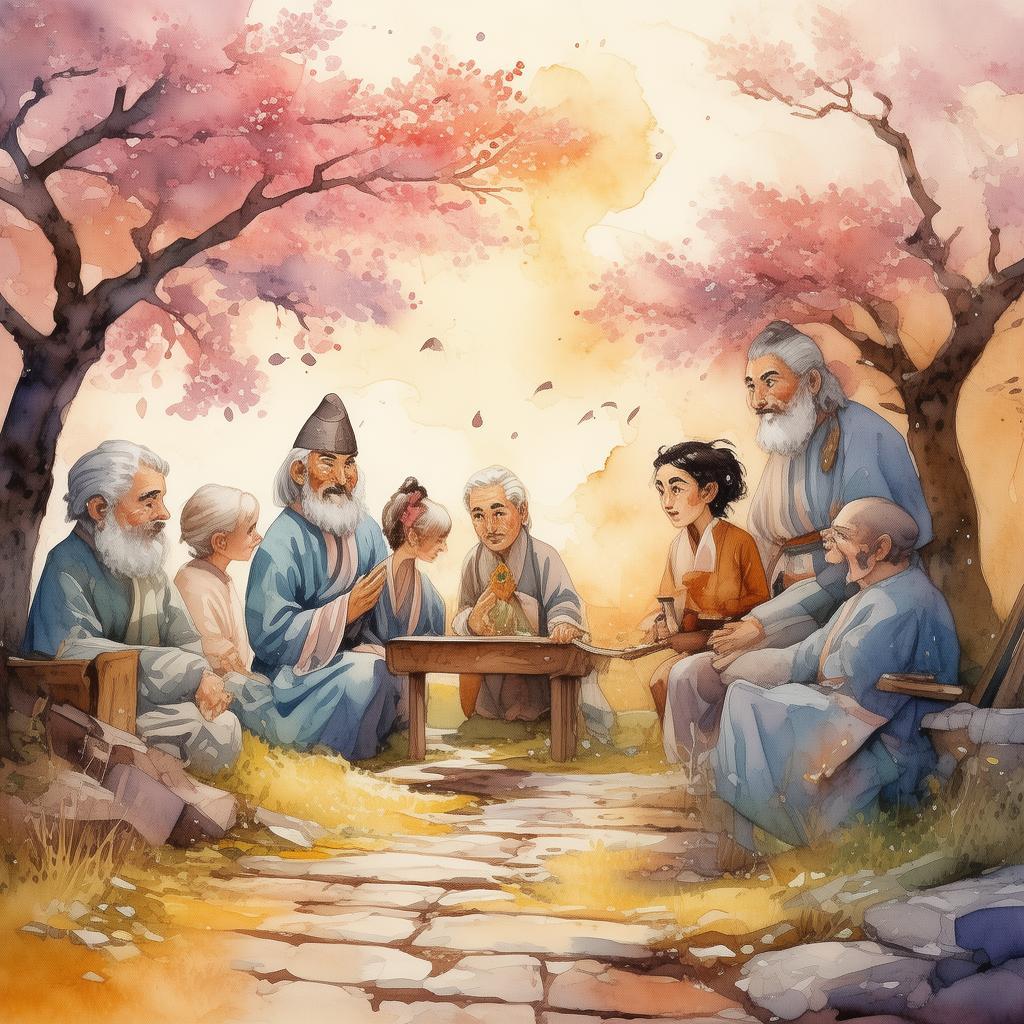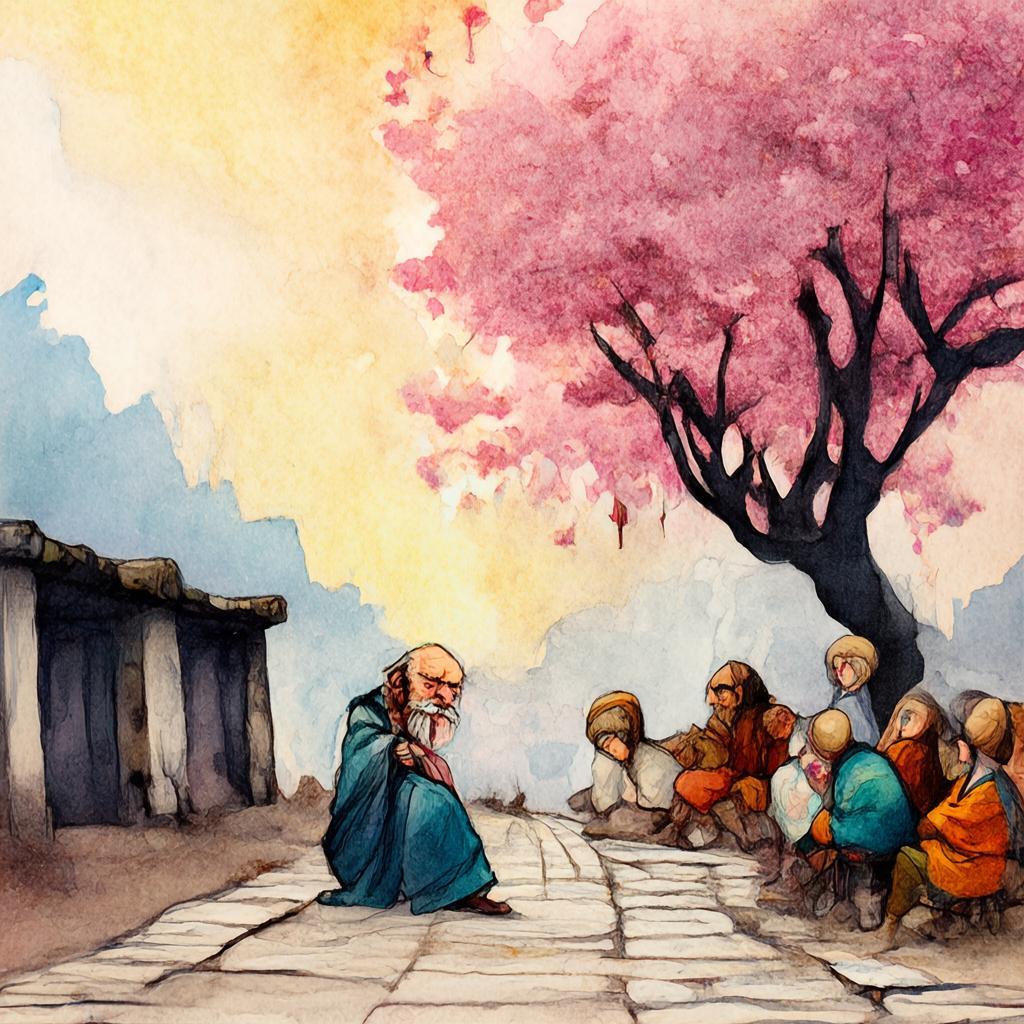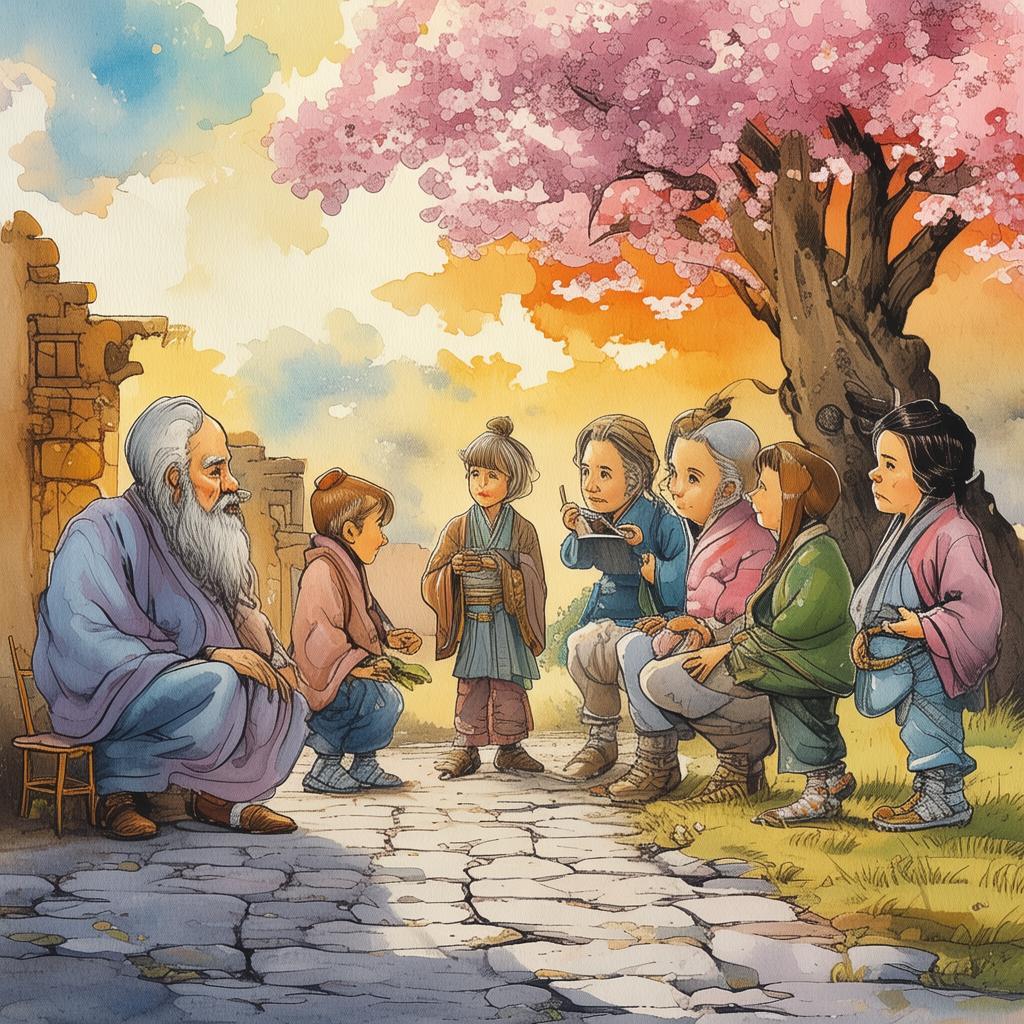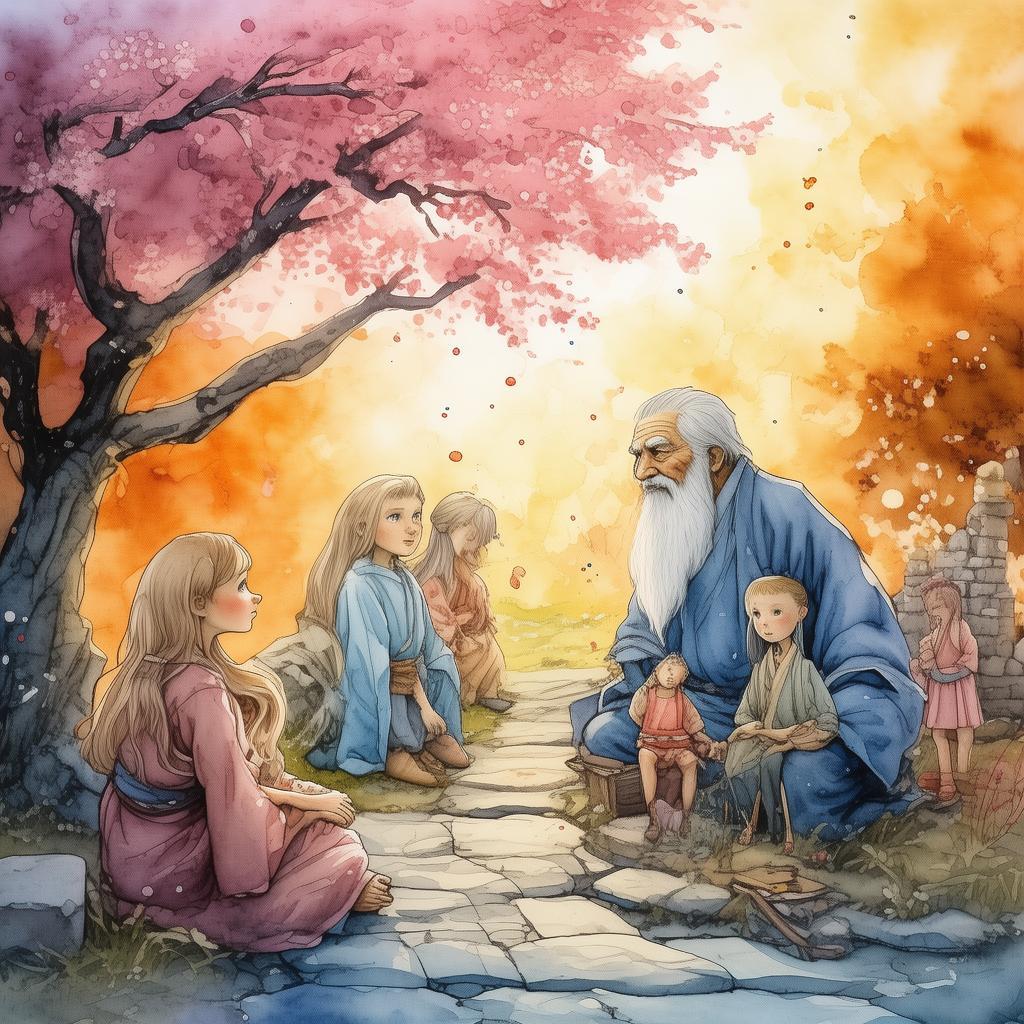The Fisherman's Lament: A River of Misfortune
In the heart of Hunan province, nestled between the lush mountains and the winding river, there lay a quaint village known for its tranquil beauty and rich folklore. Among the villagers was a fisherman named Li. Li was a man of few words, but his face was a canvas of tales untold. He spent his days rowing his small boat across the river, casting his net into the depths in search of a livelihood. His life was simple, yet he felt a profound connection to the river that sustained him.
One day, as Li was returning from his daily fishing, he overheard two old villagers discussing a peculiar idiom. "A river that flows back on itself brings misfortune," they said with grave expressions. Li, intrigued by the idiom, decided to seek out its meaning.
As he rowed his boat deeper into the river, Li pondered the idiom's significance. He had never seen a river flow backward, but the villagers' words lingered in his mind. His simple life, once filled with the gentle rhythm of the river, now seemed fraught with uncertainty.
The next morning, Li awoke to find that his boat was inexplicably tied to the same tree at the riverbank where he had left it. He was baffled, but the idiom's words returned to him. He decided to follow the river's path to its source, hoping to uncover the truth behind the idiom.
Days turned into weeks as Li journeyed upstream. The river, once familiar, now seemed to taunt him with its twists and turns. He encountered old friends and strangers along the way, each with their own stories and advice. Some suggested he turn back, but Li's determination only grew stronger.
One evening, Li found himself at the edge of a vast, ancient cave. The entrance was shrouded in mist, and the sound of water dripping echoed through the darkness. He knew that this was the source of the river. With a deep breath, Li stepped inside.
The cave was immense, with walls that seemed to close in on him. As he ventured deeper, he stumbled upon a hidden chamber. In the center of the chamber stood a large, ancient book bound in leather. Li approached the book and opened it to find pages filled with ancient wisdom and idioms.
As he read, he discovered that the idiom "A river that flows back on itself brings misfortune" was a metaphor for self-reflection and change. It was a reminder that sometimes, for one to move forward, one must first confront their past and understand its impact on their present.
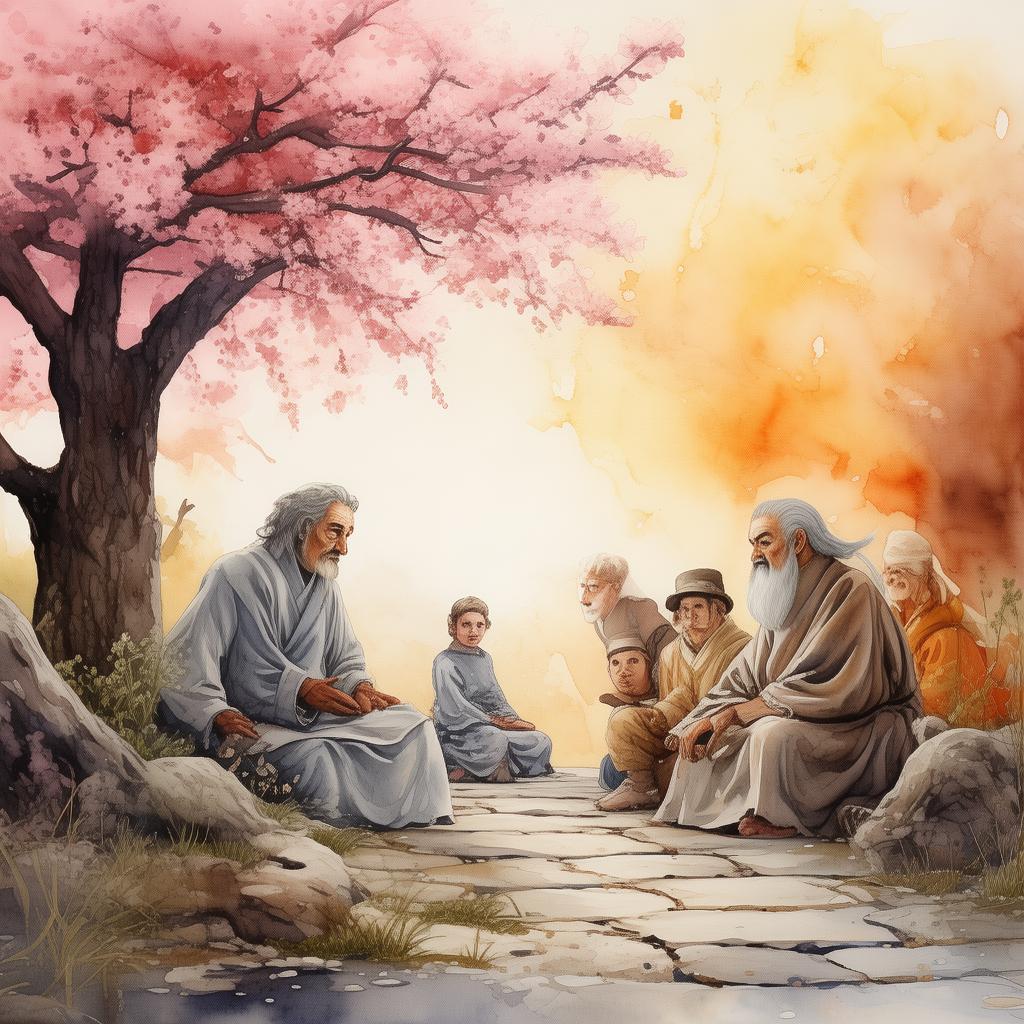
Li realized that his own life was a river that had flowed backward due to his own doubts and fears. He needed to change course, to face his past and let it go. With newfound clarity, Li made a solemn vow to himself and to the river that had sustained him for so long.
The next morning, Li returned to his village, his heart lighter and his spirit renewed. He shared his journey with the villagers, who listened in awe. The idiom, once a source of fear, now became a symbol of wisdom and resilience.
Li returned to his fishing, but this time with a different perspective. He realized that the river, like life, was ever-changing and that the key to navigating its currents was to adapt and embrace change.
The village soon thrived, with each villager learning to embrace their own rivers of life. Li's tale became a legend, passed down through generations, a reminder that sometimes, to move forward, one must first confront the past and understand its lessons.
And so, the river continued to flow, carrying the stories of the villagers, and the fisherman's tale became a part of the river's endless journey, a testament to the wisdom found in the depths of life's experiences.
✨ Original Statement ✨
All articles published on this website (including but not limited to text, images, videos, and other content) are original or authorized for reposting and are protected by relevant laws. Without the explicit written permission of this website, no individual or organization may copy, modify, repost, or use the content for commercial purposes.
If you need to quote or cooperate, please contact this site for authorization. We reserve the right to pursue legal responsibility for any unauthorized use.
Hereby declared.
